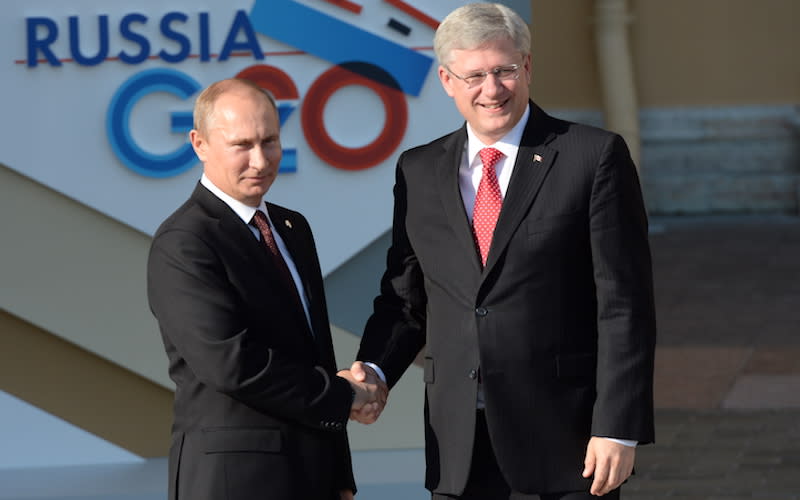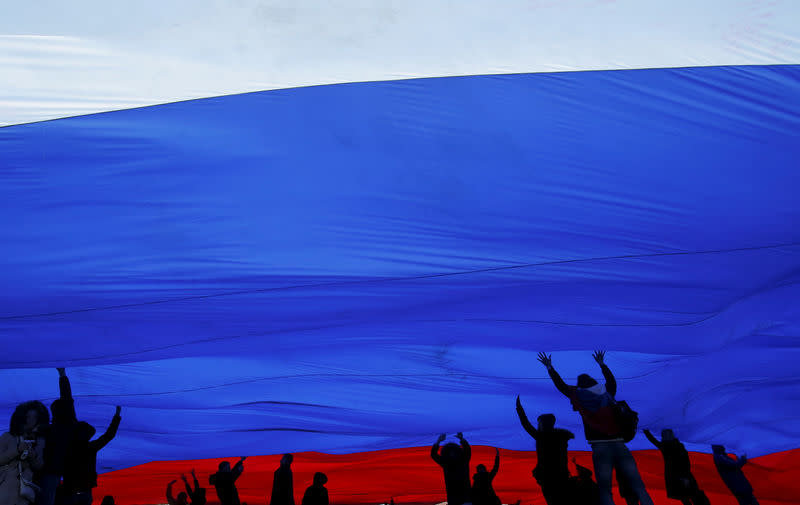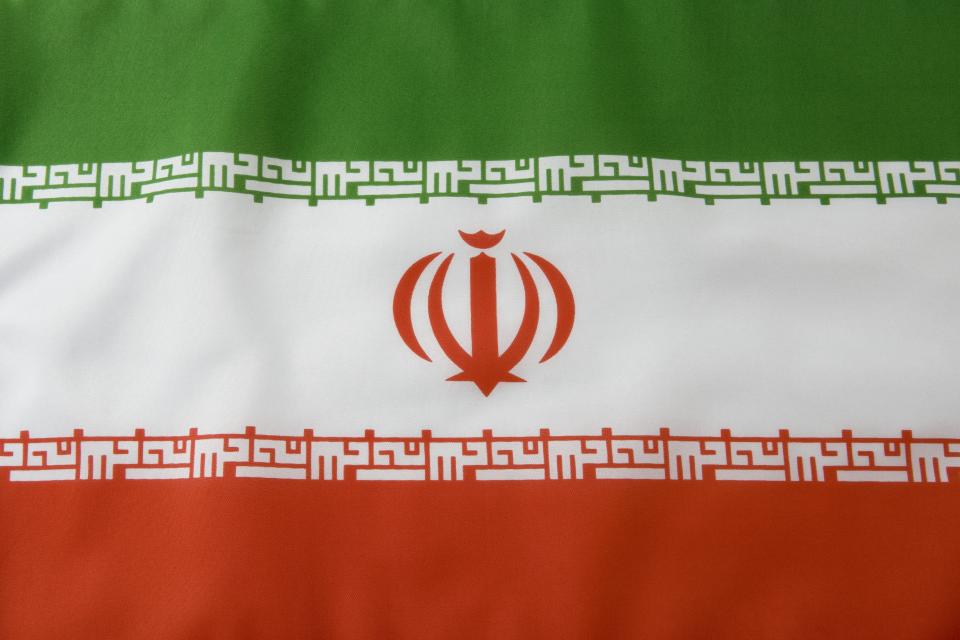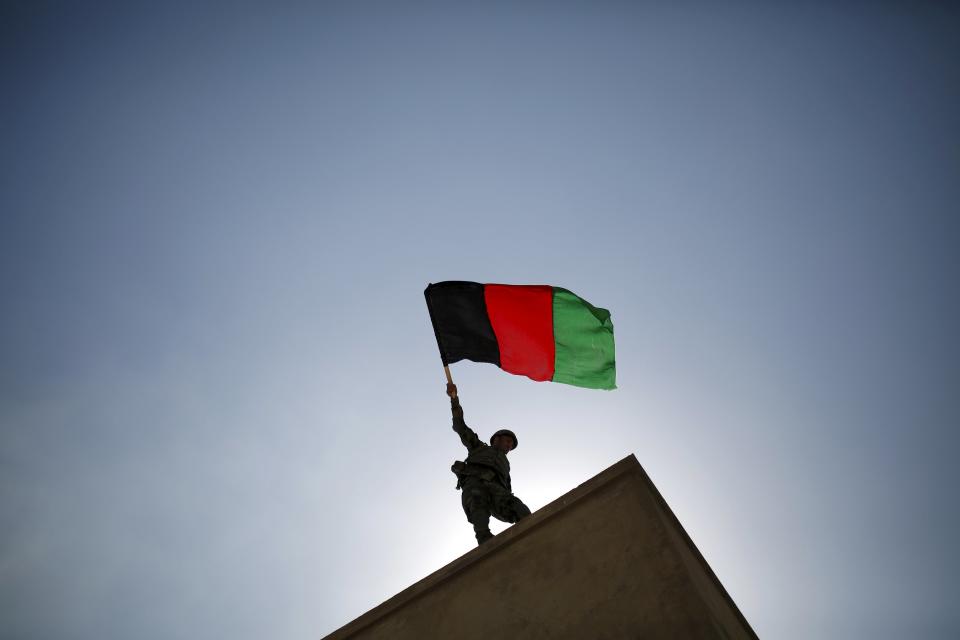We're not always friendly: Countries that have had tensions with Canada

Canadians have a reputation abroad for being friendly people, but not everybody sees it that way.
Canada is currently embroiled in tough trade negotiations with the U.S. and Mexico over the North American Free Trade Agreement (NAFTA). U.S. President Donald Trump has already commented that Canada is being “very difficult” in the multilateral talks. The three countries appear far from a new agreement after five rounds of negotiations.
Despite the fact that Foreign Affairs Minister Chrystia Freeland has called the U.S. proposals “extreme,” it may not be all doom and gloom for those in favour of the deal in Canada.
“Don’t worry about Canada,” Trump reportedly said in a leaked phone call with Mexican President Enrique Pena Nieto in late January. “Canada is no problem.”
While the reported leak may have provided a glimmer of hope for those who are pro-NAFTA in Canada, it also may have raised a few eyebrows in Mexico, which has been targeted by Trump for more than a year now. After all, Trump has said recently the U.S. would consider a trade deal with Canada that excludes Mexico.
Recently, former Mexican president Vicente Fox issued a stark warning to Prime Minister Justin Trudeau. In an interview with CTV News, Fox cautioned Trudeau not to be “Judas” and betray Mexico by signing an exclusive trade deal between Canada and the U.S.
“I warn Trudeau, and I warn Canada, you will not make it (better without Mexico),” Fox told CTV.
The quote provides a tiny glimpse of the potential Mexican mindset towards Canada if Trudeau decides to sign a deal with the U.S. that excludes Mexico. According to Fox, the move would not be wise for Canada. It may also sour relations between the two countries, which has always been cordial.
Here are some countries that have not had the most friendly relations with Canada in recent years.

Russia
Relations between Russia and Canada have deteriorated in recent years due to the Russian annexation of Crimea and military intervention in Ukraine, which occurred after the 2013 mass protests in Kiev.
Canada has a considerable Ukrainian population, and has long opposed Russian interference in Ukraine.
A spokesman for former prime minister Stephen Harper says before a G20 summit in November 2014, Russian President Vladmir Putin approached Harper and extended his hand. “I guess I’ll shake your hand but I have only one thing to say to you: You need to get out of Ukraine,” Harper reportedly told Putin.
In October 2017, the so-called Magnitsky Act became law, which allows the Canadian government to impose bans and sanctions on foreign officials for corruption and human rights violations. The law is named after a Russian lawyer who was killed in a Moscow prison after he accused Russian officials of tax fraud.
The Russian Embassy responded to the legislation by saying Canada committed an “irrational act” that has caused “irreparable damage” to the Canada-Russia relationship. Before it became law, Russia vowed such a move “will not be left without an adequate response.”

Iran
Under Harper’s direction, Canada closed its embassy in Tehran and expelled diplomats from Ottawa in September 2012.
“We have terminated our diplomatic presence there precisely because we are concerned by the behaviour and the capacity for increasingly bad behaviour of the government of Iran,” Harper said at the time, the National Post reported. “The reality is our influence and that of our partners on Iran is minimal.”
An Iranian foreign ministry spokesman slammed the Canadian government as “racist” and referred to the decision as “hostile behaviour.”
The move ended diplomatic relations between the two countries until Canadian officials under Trudeau visited Tehran in May for the first time since 2012. An unnamed source told CBC News the move was a sign that Canada is “committed to re-engaging” with the Iranians, who are consistently at political odds with allies such as Israel and the U.S.
Canada also played a key role in the 1979-80 Iranian hostage crisis by sheltering six U.S. officials and helping them secretly flee Iran.

North Korea
Canada has a long history of grievances with North Korea, dating back to hostilities that reached its boiling point when Canadians fought in the Korean War from 1950 to 1953. An armistice ended the violence, but Canada did not recognize the North Korean government until 2000, 51 years after recognizing South Korea.
In 2010, Canada imposed tight restrictions against North Koreans in response to “aggressive actions.” In October of that year, Canada introduced a “controlled engagement policy” that would limit diplomacy between Ottawa and Pyongyang.
Lawrence Cannon, the foreign affairs minister at the time, announced Canada was taking a “principled stand against those who recklessly commit acts of aggression in violation of international law.”
Ottawa has been in line with much of the international community in a bid spearheaded by the U.S. to punish North Korea for their rocket tests and nuclear program that threatens U.S. allies South Korea and Japan.
In August, there was a glimmer of hope in the relationship between the two countries when Canadian pastor Hyeon Soo Lim was released from imprisonment in North Korea after spending two years in detention. A top Canadian security official travelled to North Korea to help secure the release.

Brazil
Canada and Brazil have been at odds over trade issues. In February, Brazil filed a complaint to the World Trade Organization (WTO) over Canada’s $372.5-million loan to Montreal-based Bombardier, an aerospace competitor to Sao Paulo-based Embraer.
If Brazil wins the complaint, they could have the right to slap tariffs against Canada.
“Disagreements are a natural part of human relations,” Marcelo Ramos Araujo, the head of the economic affairs section at Canada’s Brazilian embassy, told the Globe and Mail.
But this most recent trade dispute between Canada and Brazil could escalate like it has in the past.
Canada has previously threatened to impose hefty trade sanctions against Brazil over low-interest loans given to Embraer. Canada lost a WTO complaint over low-interest loans in 2001, which is similar to what happened to Brazil, after the organization determined trade rules were being violated.
Both countries have filed trade complaints against the other. Canada has invested billions of dollars in their homegrown aerospace company, which employs thousands of workers.

Philippines flag (Gabriel Mistral/Getty Images)
Philippines
Canada’s government describes its relationship with the Philippines as “strong and friendly,” but there’s been a spat over human rights allegations in recent weeks.
In November, Prime Minister Trudeau claimed to have a “frank” conversation with Filipino President Rodrigo Duterte, who told reporters he was angered by a “foreigner,” without mentioning Trudeau by name.
“I said I will not explain. It is a personal and official insult,” Duterte said.
Human rights activists have been speaking out against Duterte’s war against alleged drug dealers and users, which is reported to have killed least 7,000 people. Many of the reported executions have taken place without due process, critics say.
Trudeau insisted the conversation was “cordial” and “the president was receptive.” The prime minister also publicly admitted that Canada does not have a perfect record on human rights, citing the past treatment of First Nations.
More than 600,000 people with Filipino ancestry reside in Canada, according to 2011 census data.

Afghanistan
After 24 Canadians were killed by Al Qaeda terrorists on Sept. 11, 2001, then prime minister Jean Chretien pledged “Canada’s complete support” in combating terrorism, according to the Canadian Encyclopedia.
In the following month, Canada participated in the U.S.-led invasion of Afghanistan, where the terror group was believed to be, sheltered by the ruling Taliban.
Canadian special forces took part initially, who were then followed by around 1,200 infantry troops months later, the Canadian Encyclopedia details. Canadians engaged with Al Qaeda and Taliban fighters while also supporting humanitarian efforts and the new government in Afghanistan.
Canada’s government says diplomatic relations were restored in 2002 after the fall of the Taliban, who had controlled the country. Since then, former prime minister Harper visited Afghanistan three times (2006, 2007 and 2011) and the Afghan president came to Canada in 2006.
Canada has pledged to spend $557 million on development assistance and supporting troops in Afghanistan through 2017, the federal government confirms.


